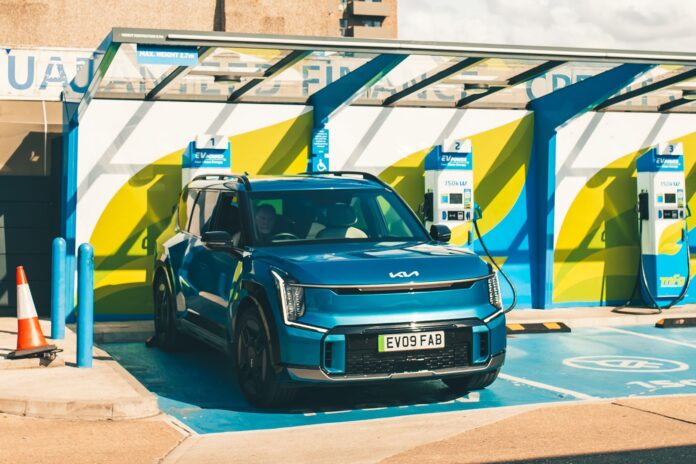The rapid expansion of electric vehicle (EV) charging infrastructure in the UK is being significantly hampered by delays in connecting new chargers to the national electricity grid. Industry leaders warn that inconsistent processes and bureaucratic bottlenecks across the country’s 14 regional energy distributors (DNOs) are slowing progress, despite sufficient overall power capacity.
Bottlenecks in the System
ChargeUK, the leading trade body representing major charging operators like BP Pulse, Gridserve, and Ionity, has identified varying standards and sluggish processing times as major obstacles. While the UK boasts over 86,000 public charge points—ranging from slow 3kW to ultra-rapid 480kW—the pace of expansion could be much faster with improved grid access.
Osprey, the UK’s third-largest rapid charger provider, grew its network by 150% last year, but acknowledges that better DNO support would have enabled even faster deployment. According to Osprey, sufficient power exists to connect most public charging projects; the delays stem from personnel shortages and non-standardized application processes. Legal hurdles, in particular, vary significantly across DNOs, adding unnecessary time to connections.
Local Councils Feel the Strain
The impact of these delays extends to local authorities. Surrey County Council, aiming to install 2,000 public chargers by February 2028, had only completed 375 by September. Power connection delays were cited as a primary reason. Residents of Farnham, expecting four new charge points by January, found work hadn’t even begun by October.
Regulatory Review Offers Hope
The situation is not without potential solutions. In November, energy regulator Ofgem launched a comprehensive review of the connections process for new energy projects, including EV chargers. The review will scrutinize each stage to identify areas for improvement and accelerate connections.
Industry Calls for Action
Industry leaders express cautious optimism that Ofgem’s review will spur momentum. Jarrod Birch, ChargeUK’s head of policy, stated the need for renewed collaboration and focus to ensure that charger deployment keeps pace with growing demand. The hope is that streamlined processes and standardized procedures will unlock the full potential of the UK’s EV charging infrastructure.
The current delays highlight a critical need for grid modernization and regulatory reform to support the transition to electric vehicles. Without swift action, the rollout of essential charging infrastructure risks falling behind, potentially hindering the adoption of EVs and undermining climate goals





















